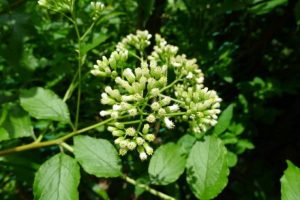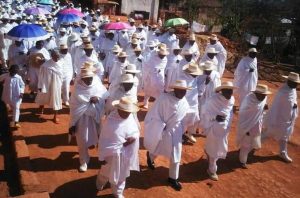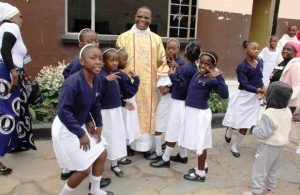Financed by Istanbul, it also contains other structures: a congress hall, administration offices and a library. The presence of Turkey in Africa is nothing new: educational and social projects and the construction of mosques are being carried out in about thirty African countries.
It rises majestically, beautiful and immense. The Accra mosque is the largest of the modern type in all West Africa. Built on the model of the Blue Mosque of Istanbul, it is also a sign of the close bond between the Islam of this part of Africa and that of Turkey. It was paid for by a group of businessmen based in the Hudai Foundation. But the country facing the Bosporus does not only provide finance; marbles, earthenware, ceramic tiles and the like all come from there.
The great mosque stands in Kanda, a residential area. Close by is Nima, one of the largest slums of Accra; inhabited mostly by Moslems, it is a hell of iron sheets, sewage and unbearable smells, next door to an oasis of prayer. Building began in 2012 – just one year after the opening of the Turkish embassy – and was expected to be finished within two years. Things did not go according to plan however and costs soared. It is difficult to know how much has been invested in this great mosque. The first estimate was said to be 10 million dollars but this had to be increased over the years.
The National Mosque of Accra will not simply be a house of prayer but also a symbol for the Ghana Moslem community. Among its 29.46 million inhabitants, 71% are Christian, 17% Moslem and the rest belong to traditional faiths.
The mosque is 35 metres high, 19 in diameter; there is one central cupola and four others, three entrances, four minarets, each 61 metres high. The great mosque can hold up to 7,000 people inside its walls and as many again in the external spaces. The site of the complex belongs to the Moslem community.
The theme of the ‘character’ of Islam is one that is dealt with in Ghana, a traditionally peaceful country where the Moslem, Christian and traditional faiths live together without any special problems. It represents a sort of barrier against the advance of Islamic extremism.
Nevertheless, the Imam Sheikh Osmanu Nuhu Sharubutu, repeats, it is necessary to be on the alert and not take anything for granted. It caused great surprise when some young Ghanaians, one girl among them, were found to be members of IS groups fighting in Syria. Those young people were stopped and arrested before they could leave. (Antonella Sinopoli)






